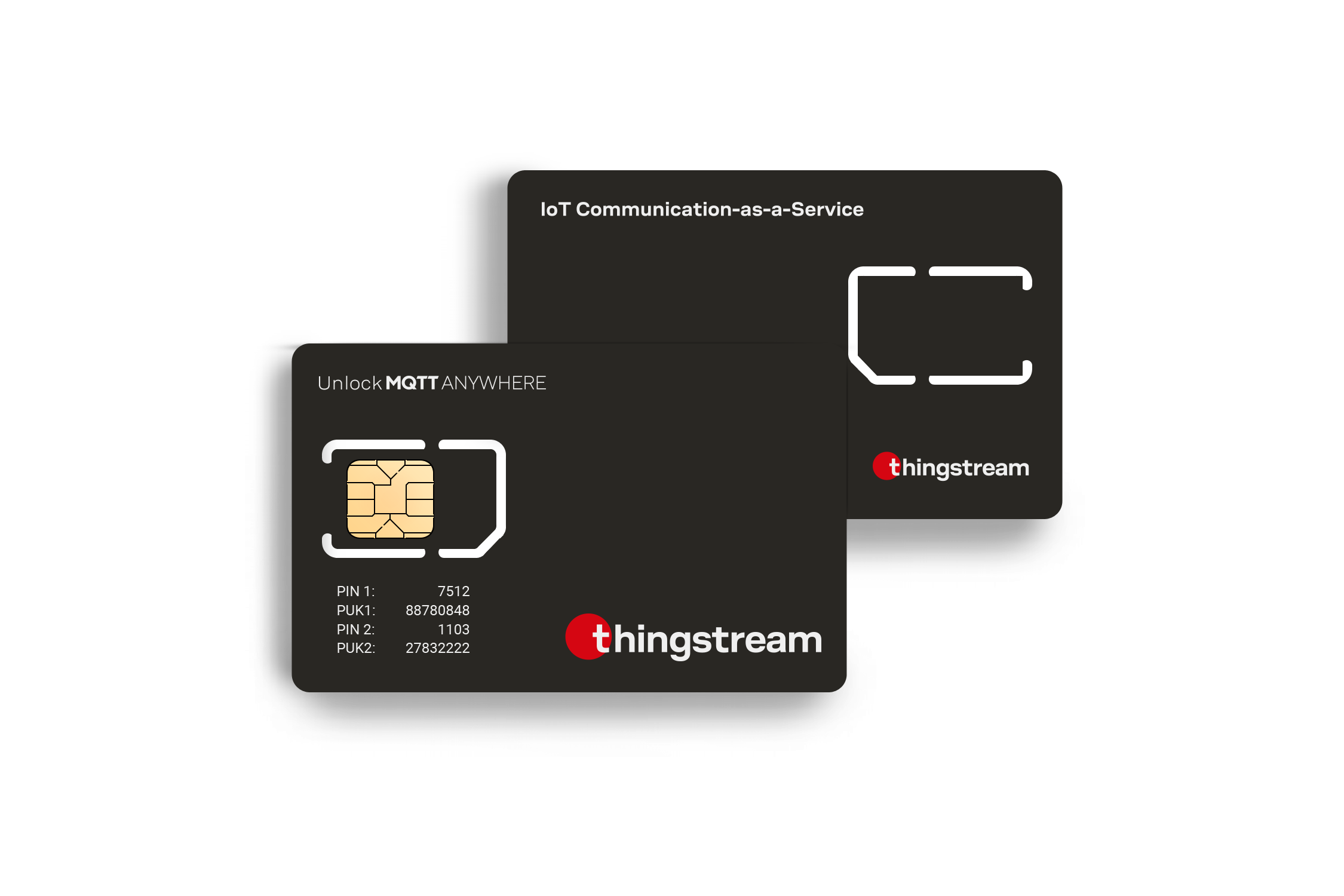Nb-Iot Sim Card IoT SIM Card
Nb-Iot Sim Card IoT SIM Card
Blog Article
Vodafone Iot Sim Card Smart Connectivity IoT Services
The landscape of manufacturing is evolving quickly, driven primarily by technological advancements. Among these advancements, IoT connectivity options for manufacturing automation stand out as pivotal parts reshaping how industries function. The Internet of Things (IoT) integrates digital and physical worlds, making a network of interconnected gadgets that talk seamlessly. This interconnectedness permits producers to optimize their processes and enhance productivity.
Real-time information is a cornerstone of recent manufacturing. Through IoT connectivity options, machines and sensors generate information that present insights into manufacturing processes. This quick access to information empowers producers to make informed choices rapidly. For occasion, if a machine is underperforming, operators can identify the issue and implement corrective actions at once, finally minimizing downtime and enhancing throughput.
Predictive maintenance is another important advantage of IoT connectivity solutions. By continuously monitoring gear performance through numerous sensors, manufacturers can anticipate failures before they occur. This proactive strategy drastically reduces maintenance costs and improves the lifecycle of equipment. Instead of adhering to a reactive maintenance technique, organizations can optimize their maintenance schedules primarily based on actual machine circumstances.
Iot Sim Card Global IoT SIM Card Solutions
IoT technology also facilitates higher supply chain management. With the combination of sensors all through the availability chain, producers acquire enhanced visibility into stock ranges and materials flows. This improved visibility permits businesses to optimize inventory management, making certain that they've the required supplies available with out overstocking. Such efficiency interprets to reduced prices and improved service ranges, that are essential for sustaining a aggressive edge.
Automation and robotics are more and more reliant on IoT connectivity options. Smart factories combine automated techniques powered by IoT to streamline manufacturing processes. Robotics geared up with IoT capabilities can communicate with each other and adjust their actions primarily based on real-time data from the environment. This level of synchronization enables the implementation of adaptive manufacturing systems that respond to fluctuations in demand quickly and successfully. Iot Single Sim Card.
M2m Iot Sim Card Freeway simHERO IoT Prepaid SIM
Implementing IoT connectivity solutions requires a solid community infrastructure. Manufacturers should spend money on dependable and secure communication networks able to dealing with the immense knowledge generated by interconnected devices. 5G know-how is emerging as a crucial enabler of IoT connectivity in manufacturing. Its rapid speed and low latency support the real-time applications which are essential for data-driven decision-making.
Data analytics performs an important position in harnessing the complete potential of IoT connectivity solutions. With a wealth of information generated from related devices, manufacturers must employ advanced analytics tools to extract actionable insights. Machine learning algorithms can determine patterns and anomalies in information that may not be apparent to human analysts. This data-driven strategy enhances operational efficiency by driving continuous enchancment across manufacturing processes.
Cybersecurity is an essential consideration as producers integrate IoT options into their operations. The connectivity that IoT brings will increase the surface space for potential cyberattacks. Implementing strong security measures to safeguard crucial manufacturing methods is paramount. my response This entails making certain that every one devices are secure, knowledge is encrypted, and continuous monitoring for threats is in place.
Worker security is considerably improved by way of IoT connectivity solutions. Wearable units outfitted with sensors can monitor the health and safety of staff in actual time. These smart wearables can alert personnel to hazardous situations, ensuring well timed intervention. Such measures not only defend staff but in addition contribute to general productiveness by minimizing the chance of accidents.
Iot Global Sim Card IoT SIM Card API global connectivity
The transition to smart manufacturing through IoT connectivity solutions also promotes sustainability. By optimizing processes, manufacturers can significantly scale back waste and energy consumption. IoT gadgets assist track resource usage, enabling businesses to establish areas where efficiency may be enhanced. These environmentally friendly practices not only benefit the planet but can even lead to value financial savings over time.
The impact of IoT connectivity solutions on manufacturing extends beyond the operational realm. They enable enhanced customer engagement by allowing manufacturers to deliver customized services. Through IoT-enabled gadgets, producers can collect information about customer preferences, resulting in the creation of tailor-made choices that higher meet market calls for. This degree of engagement fosters buyer loyalty and strengthens brand popularity.
In conclusion, IoT connectivity solutions for manufacturing automation symbolize a transformative pressure in the industry. By providing real-time insights, predicting equipment failures, improving supply chain management, and enhancing employee security, these options redefine operational effectivity. As producers continue to combine IoT technologies, the benefits prolong past conventional metrics of productivity and value. Embracing these improvements units the groundwork for a extra sustainable and responsive manufacturing environment that is outfitted to meet the challenges of the long run.
Iot Sim Card Global IoT connectivity data plans SIM

- Enhanced real-time monitoring via IoT sensors allows manufacturers to track machinery performance and operational efficiency.
- Predictive maintenance is facilitated by IoT connectivity, reducing downtime and extending tools lifespan by way of well timed interventions.
- Seamless integration of IoT units throughout manufacturing traces enhances information assortment, resulting in improved decision-making processes.
- Wireless technologies similar to LPWAN enable cost-effective communication over vast manufacturing facilities, minimizing installation complexity.
- Cloud-based IoT platforms present scalable options for information analytics and visualization, empowering producers to establish developments and optimize workflows.
- Enhanced asset monitoring using IoT units ensures better inventory administration and decreased losses as a outcome of misplacement or theft.
- Industry-specific IoT protocols, like MQTT and CoAP, guarantee environment friendly and safe knowledge transmission tailored to manufacturing wants.
- Advanced cybersecurity measures are crucial in IoT ecosystems to guard sensitive operational data from potential threats and breaches.
- Integration of IoT with machine learning algorithms permits for autonomous changes and improvements in manufacturing processes based mostly on historical information.
- Collaboration with IoT resolution suppliers allows manufacturers to customise connectivity strategies that address their distinctive operational challenges.
What are IoT connectivity solutions for manufacturing automation?
IoT connectivity options allow seamless communication between machines, sensors, and devices inside a manufacturing environment, facilitating data change, monitoring, and management to enhance operational effectivity and decision-making.
How do IoT connectivity solutions enhance manufacturing processes?
These options streamline workflows, cut back downtime, and optimize asset utilization by providing real-time information insights, enabling predictive maintenance, and enhancing supply chain visibility.
Iot Machine To Machine Sim Card IoT SIM Card API global connectivity
What kinds of IoT connectivity technologies are generally used in manufacturing?

Common technologies embrace Wi-Fi, Zigbee, LoRaWAN, cellular (4G/5G), and Bluetooth. Each know-how provides unique advantages primarily based on range, data switch velocity, and power consumption fitted to completely different manufacturing wants.
How safe are IoT connectivity options for manufacturing?
Robust security measures, including encryption, system authentication, and network segmentation, are important to guard additional info production environments from cyber threats, guaranteeing knowledge integrity and operational continuity.
Best Iot Sim Card IoT SIM Card Connectivity
Can IoT connectivity solutions be integrated with existing manufacturing systems?
Yes, many IoT options are designed for interoperability, allowing integration with legacy techniques and gear. This allows producers to enhance their capabilities with out replacing present infrastructure.
Iot Sim Card What is an IoT SIM Card?
What are the cost implications of implementing IoT connectivity solutions?
Initial setup costs may range, but long-term savings are sometimes realized via increased effectivity, decreased waste, and improved maintenance strategies (Vodafone Iot Sim Card). A detailed cost-benefit evaluation may help decide the monetary impression.
How can I choose the proper IoT connectivity solution for my manufacturing facility?

Evaluate components such as scalability, reliability, ease of integration, and particular use case necessities. Consulting with industry specialists and conducting pilot projects might help in figuring out the best fit on your wants.
Sim Card For Iot Prepaid IoT SIMs Europe 10 SIM Bundle
What are the challenges in adopting IoT connectivity options for manufacturing?
Challenges might embody cybersecurity considerations, interoperability points, and the need for workers training. Addressing these obstacles via strategic planning and stakeholder involvement can facilitate profitable adoption.
How does information collected by way of IoT connectivity affect decision-making in manufacturing?
Real-time knowledge analytics permits manufacturers to make informed choices quickly, optimizing operational processes, bettering quality control, and enabling proactive administration of sources and potential issues - Global Iot Sim Card.
Report this page